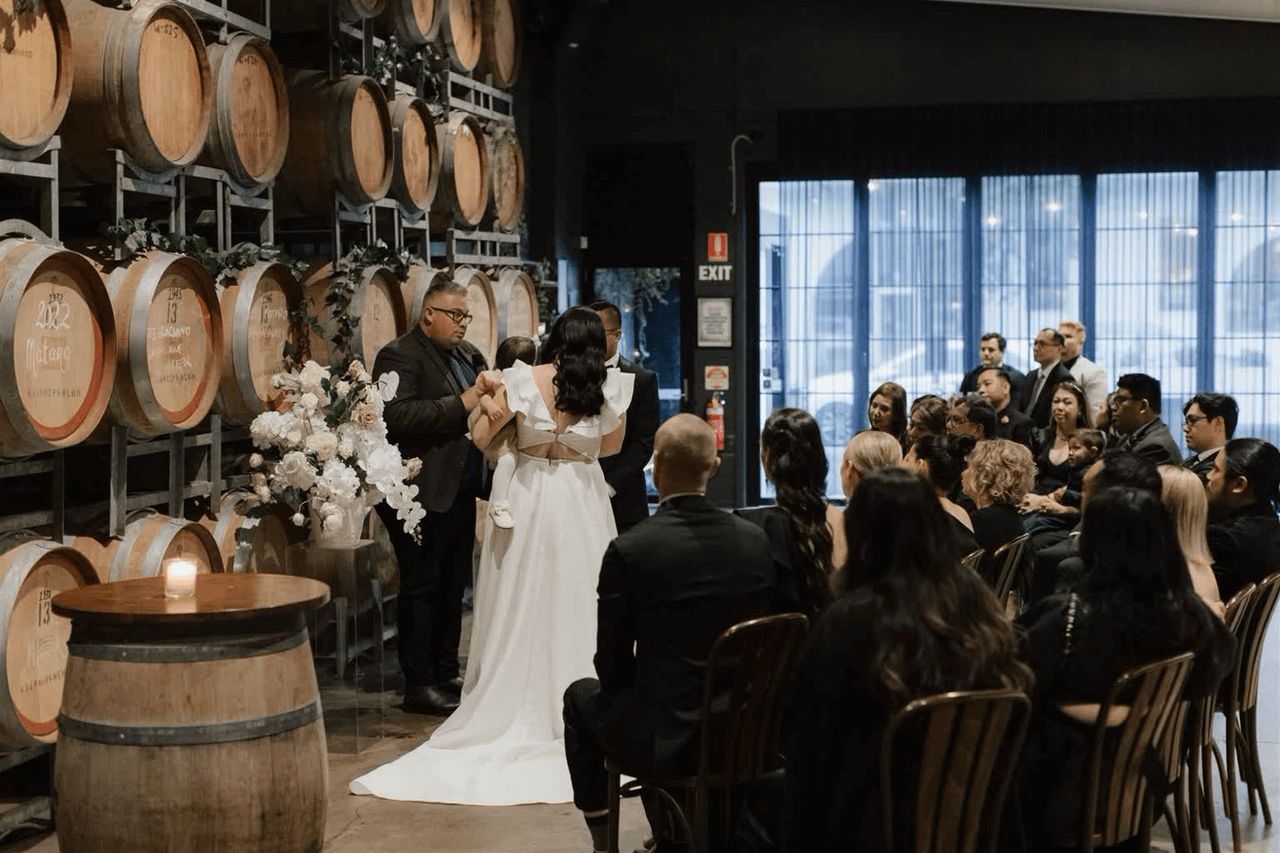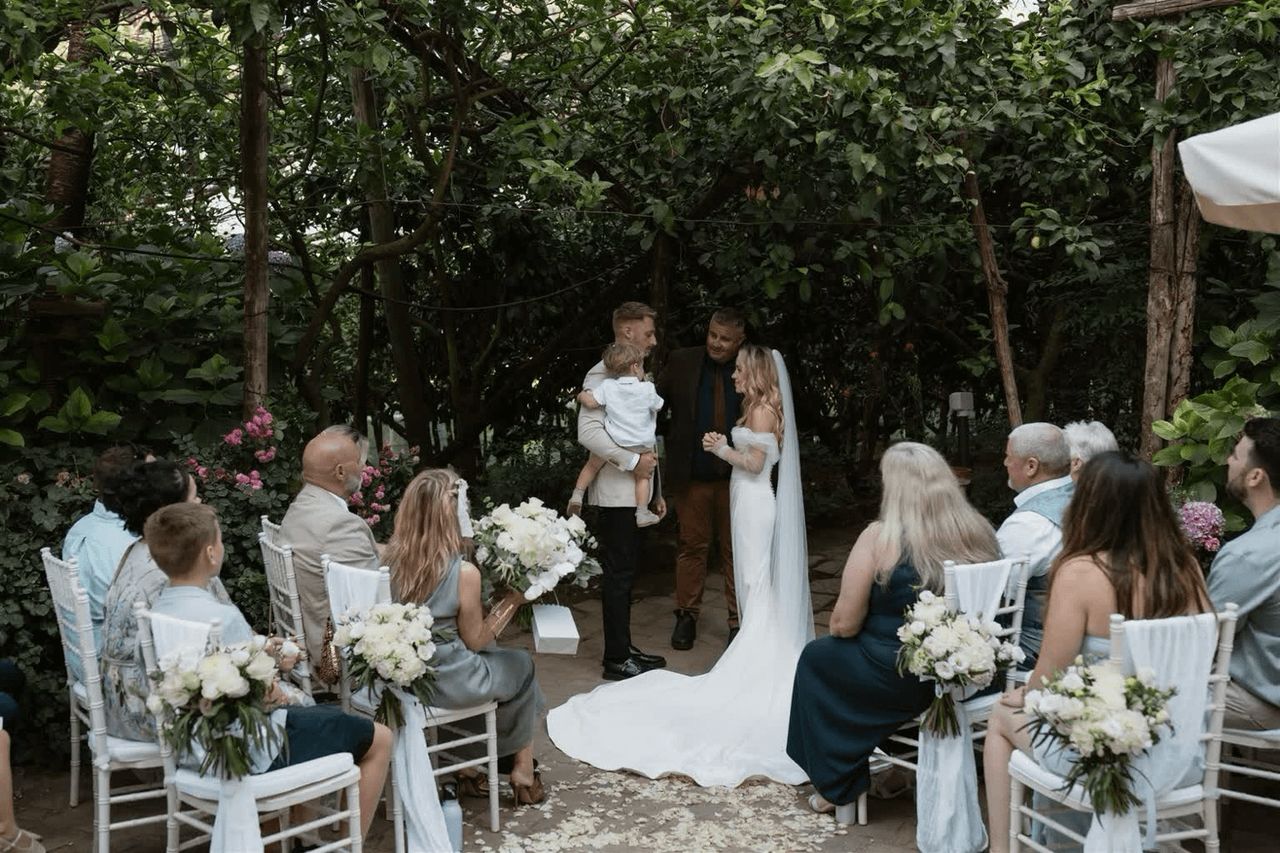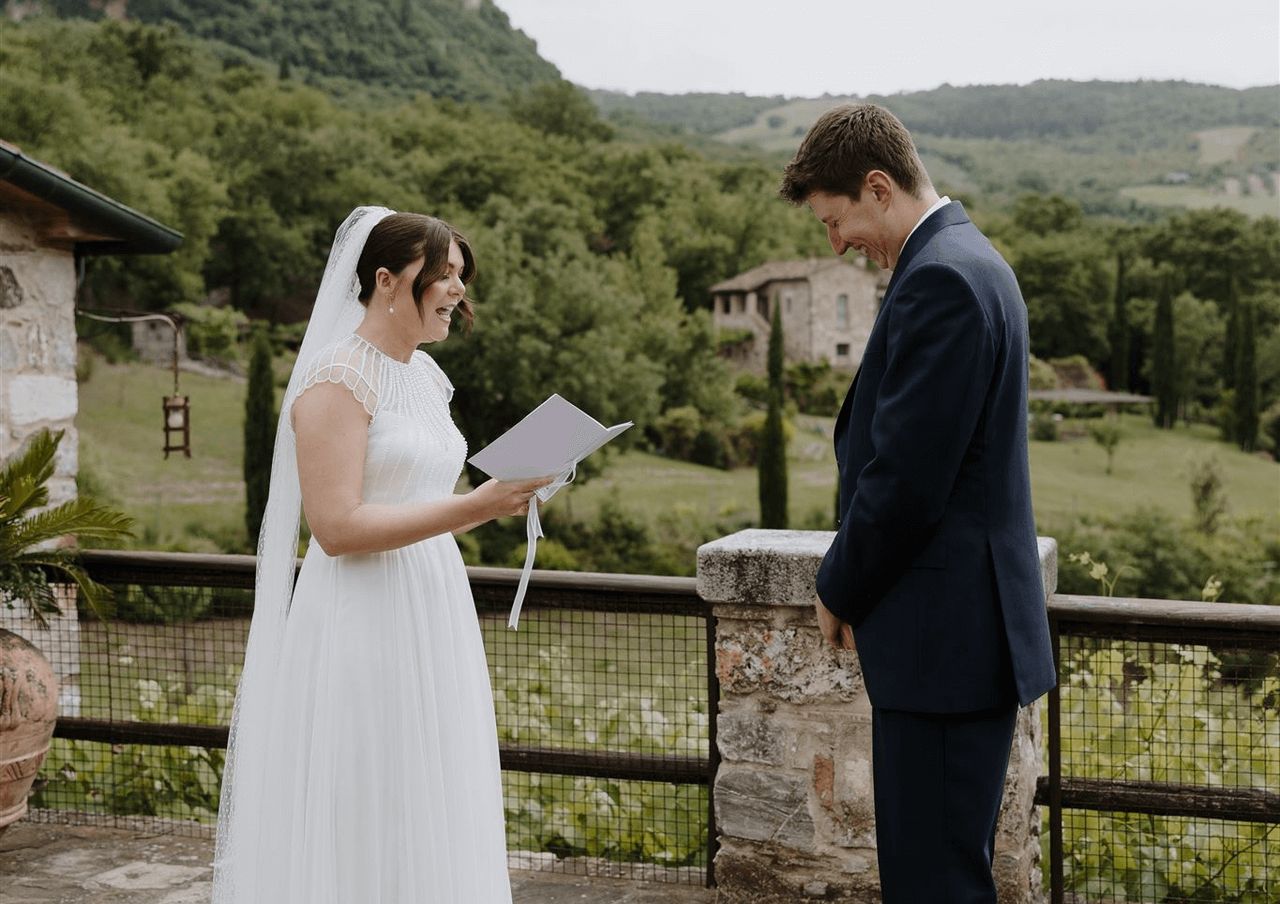· Wedding planning · 8 min read
How to Be a Celebrant - The 22 Rules
A rulebook for the weirdos, romantics, and professionals who believe the ceremony should be the best part of the wedding

Being a celebrant is a strange and wonderful job. You stand in front of a group of strangers, legally authorise a marriage between two of their favourite people, and speak words that might stick in someone’s memory for the rest of their life because the three of you breathed their marriage into life.
It’s intimate, technical, theatrical, performative, wonderful, weird, spiritual, and deeply human — all at the same time.
And here’s my thing: I believe the marriage ceremony can be and should be the best part of a wedding. It’s not a hurdle to get past so people can drink. It’s the reason we’re all gathered. It’s the moment two people make promises to each other in front of their people — and we get to witness it.
Done well, the ceremony is unforgettable.
Done badly, it’s something guests joke about.
So if you’re a celebrant — or you’re thinking of becoming one — here’s a set of rules, or guidelines, or truths that I’ve picked up after marrying thousands of people across more than a decade. These are based on one core idea: this work matters, and it deserves more than reading out a bunch of questionnaire answers and calling it a “personalised ceremony.”
N.B.: These twenty-two rules are my rules, not “The Rules” on how to be a celebrant. Those rules are in the Marriage Act of 1961.
Step One: Get Over Yourself
1. You’re not the main character
The couple is. Their story is. Their promises are. This isn’t your wedding.
Be a spotlight not a burning bush.
2. You don’t know them better than their mum
No matter how charming your coffee catch-up was, you are not their best friend. Don’t pretend to be. Be a respectful, caring, helpful professional celebrant — that’s where your magic is, that’s what you’re good at. Be friends with the couple but at 3pm on Saturday you’re not up there competing for Friend Of The Year.
3. A ceremony isn’t a script
You can use notes. You can repeat phrases. You can re-use your best lines. But if you’re just reading back their questionnaire with a few adjectives added, you’re not writing a ceremony — you’re doing copy-paste admin with a microphone.
Not everyone needs to present their ceremonies without script in hand like I do, but learn to deliver the script more like how a professional actor does, not the way a student reading a notice at school assembly does.
4. Weird is good
The best ceremonies I’ve ever delivered have been odd. Quirky, heartfelt, vulnerable, messy, joyful. Let them be human. Let them be real. Let them be wonderful.
Here’s something most people don’t know, but every single human on the planet is weird except for me … I’m the only normal one left!
5. Legal doesn’t mean boring
The paperwork matters. The words you’re legally required to say matter. But you don’t have to make it sound like a Centrelink pamphlet.
Make it feel alive. Make it meaningful. Make it right.
Step Two: Be the Grown-Up
6. You are the calm in the chaos
On wedding day, everything might fall apart — the rings, the weather, the family dynamics - or it might not. Regardless of how fall-apart-y it gets you cannot fall apart with it. Be the one person who knows what’s happening and carries the couple through it.
7. Build a system
Your inbox is not a workflow. Your calendar is not a CRM. Build or borrow a system that keeps everything running smoothly so your brain can focus on the couple — not the logistics.
Build a system while you’re quiet so it can hold you when you’re busy.
Your time and sanity can’t scale up but your system and fee can.
8. You’re allowed to charge real money
You are not “just saying a few words.” You’re carrying the legal, emotional, and creative weight of a life-changing moment.
You are valued for being the one who stands still when everything else is spinning. You’re the calm, the witness, the meaning-maker.
You carry the legal, emotional, and creative weight of a moment that will echo for the rest of their lives.
You’ve listened closely for months and years, written with care, stayed up too late reworking a sentence that needs to land just right.
You hold space, hold silence, hold people. You aren’t getting paid per hour. You’re being paid to turn up emotionally, spiritually, soulfully. Price yourself accordingly.
9. Write it. Speak it. Rehearse it.
Don’t just “see how it goes on the day.” Great delivery comes from practice. Even the spontaneous bits are better when they’re built on preparation.
Write them down to insert them into your brain.
Step Three: Make It Matter
10. Speak like a human
No jargon. No cheesy wedding tropes. No “we are gathered here todays” unless you’re doing it ironically. Be warm. Be present. Be real. When we say unexpected and different things in a wedding ceremony: listen, people will.
11. Silence is a tool
Don’t rush. Don’t fill every pause. A breath, a moment, a beat — it helps everyone catch up emotionally.
Breath.
12. Know what this is
This is a marriage. A foundation for life. A public promise. A prophectic voice in a chaotic world. A dream. A hope. All of their intentions tied to an arrow and shot into the future. A moment where two people stop time and say: “It’s you. Always you.”
It’s not a transition between photos and drinks.
It’s not a funeral for the couple’s single lives.
It’s not an “up until now” introduction to the reception.
It is a marriage ceremony.
Treat it like it matters, because it does.
Step Four: Own the Craft
13. Wear something that says “This is important,” not “Look at me.”
Dress like a professional who cares about the couple, the guests, and the moment.
How you dress is barely about what you wear but more about how you present yourself. Hold your head high, smile wide, and let everyone know they’re safe in your hands.
14. Use your voice. Literally.
Train it. Listen to it. Record your ceremonies and cringe if you must, but get better. Your voice is your tool. Use it with care.
Test different microphones and speakers and see how your voice sounds in and through them, how when you hold the microphone differently it sounds different. Learn about sound EQ settings and master the projection and amplification of your voice.
The perfect microphone for me might be different for you.
15. Don’t be funny — be true
If humour happens, let it happen. Be fun but don’t write purely for laughs. Write for connection. Be clever if it fits. Be sincere always.
My mentor when I first entered radio (Stan Hillard, rest in peace) taught me this nugget:
Imagine your audience are the stupidest people alive, then treat them with the upmost respect.
I think about that every day, particularily when I think it might be hilarious to say something in a wedding ceremony and how many people won’t get the joke.
Step Five: Stay in the Game
16. You only need a handful of raving fans to build a career
You don’t need to be booked every Saturday. You need the right couples, the right workflow, and the right price. That’s enough.
Be content with enough.
17. Automate everything that isn’t soul
Emails. Bookings. Payments. Use technology so you can spend your energy on the bit that actually matters — the ceremony. Embrace AI, automations, gadgets, devices, software all in aid of you being the best celebrant you could be.
18. Keep learning, but stay yourself
Go to workshops. Read scripts. Steal ideas. Prompt ChatGPT for criticism. Ask me for advice. But everything you borrow must come through your own voice — or it’s just noise, and we got enough noise.
Pursue excellence. Read books. Listen to podcasts. Find celebrancy inspiration in weird places.
19. Celebrate other celebrants loudly and often
There’s no leaderboard of who is the best celebrant. Generosity wins. Lift the standard. Help new celebrants. And if you see someone doing great work — tell them.
The only reason anyone thinks there is a “best” celebrant is because our lovely clients, who only make good decisions ever, decided that by pure happenstance, the celebrant they booked and paid for is the best.
I’m not ridiculing that process, just the idea that any of us could think too highly of ourselves when we’re each so beautifully different and weird.
20. You’re not just in the wedding industry — you’re in the memory business
Couples won’t remember the petals or the playlist. They’ll remember the moment they said “I take you as my…” Help make that moment unforgettable. They’ll forget your words as they’re halfway down the aisle for the recessional but they’ll always remember how you made them feel.
21. You’re allowed to take this seriously
Not solemnly. Not stiffly. But seriously. This matters. The work we do has weight. If you’re in it for the vibes, you’re in the wrong job.
22. This is a calling disguised as a job
You didn’t end up here by accident. Something in you believed that love is worth showing up for. That words matter. That promises should be said out loud. Follow that feeling. It’s telling you the truth.
Want to become a celebrant?
Start with this: care more about the couple than your ego, more about the words than your feed, more about the moment than the performance. And then — go write a ceremony that someone will still be talking about in twenty years.
Need help getting there? I’ve got all the help and real talk at The Celebrant Institute where Sarah also delivers the course you need to take to become a celebrant, the Certificate IV in Celebrancy.
If you’re thinking about becoming a celebrant, do it, it’s the best gig going.
Feature photograph by George Bowden with The Elopement Collective in Umbria.



